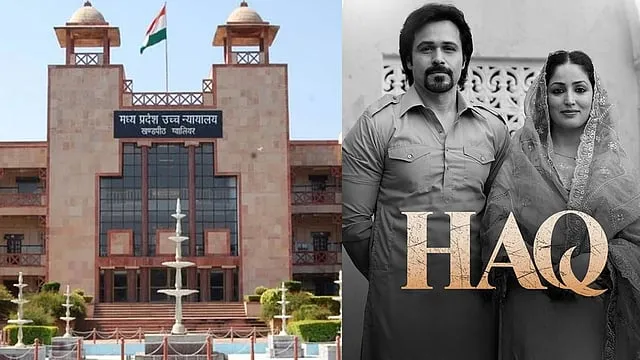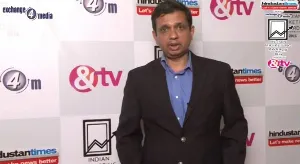Haq: A Thought-Provoking Exploration of Faith and Law

The film 'Haq', directed by Suparn Verma, offers a compelling narrative that addresses the intricate relationship between faith, law, and personal agency. Drawing inspiration from the historic Shah Bano case, the film transcends the boundaries of a traditional courtroom drama to present a poignant human story about a woman asserting her rights in a patriarchal society.
Set against the backdrop of a small town in Uttar Pradesh, the film begins with Shazia Bano, portrayed by Yami Gautam, as she grapples with the societal pressures and personal challenges of her life. The narrative unfolds in 1967, allowing audiences to witness Shazia's early life and the events leading to her struggles. As her circumstances deteriorate, the film poignantly captures the brutality of her reality, without resorting to sensationalism.
Emraan Hashmi plays Abbas Khan, Shazia's husband, who embodies the complexities of entitlement and manipulation. His character is not drawn as a mere villain; instead, he is portrayed as a flawed individual who misuses faith to justify his actions. This nuanced representation allows 'Haq' to maintain a balanced perspective, demonstrating how personal ego and societal norms can distort both religious beliefs and legal principles.
A significant strength of 'Haq' lies in its mature approach to sensitive subjects. The film refrains from becoming overly didactic or politically charged, instead opting to present both sides of the argument surrounding Sharia law and secular legal frameworks. This is particularly relevant in the current socio-political climate, where discussions about gender justice and religious rights are increasingly pertinent.
The film also serves as a critique of how religious texts are often cherry-picked to uphold patriarchal structures, overshadowing their core messages of equality and compassion. Additionally, it seeks to clarify misconceptions about Islamic laws and personal rights, providing a much-needed context in a time of widespread misinformation.
While the incorporation of Urdu in the dialogue adds authenticity, it may pose a challenge for some viewers who are unfamiliar with the language, potentially alienating parts of the audience. Nevertheless, the film's writing, spearheaded by Reshu Nath, effectively conveys its themes, making it a thought-provoking experience.
The performances of the lead actors are pivotal to the film's impact. Yami Gautam delivers a powerful portrayal of Shazia Bano, effectively embodying the emotional spectrum required for her character. Her ability to convey vulnerability alongside strength resonates deeply with audiences, marking a return to her dramatic roots after a series of more conventional roles.
Emraan Hashmi's performance is equally commendable, capturing the essence of a man conflicted by his own entitlement. His portrayal demonstrates the complexities inherent in human relationships, particularly when power dynamics are at play. The courtroom scenes, particularly the climax where both characters confront each other, are among the film's most intense moments, showcasing the raw emotions involved.
Suparn Verma's direction is marked by a careful attention to detail, allowing subtle elements to linger in the audience's mind long after viewing. Symbolic moments—such as the recurring motif of the pressure cooker—serve to underline the themes of societal pressure and personal relationships. The film also addresses the societal norms that perpetuate abuse and the expectations placed upon women to maintain familial peace, encapsulated in powerful dialogues that resonate with many.
Although the music does not stand out prominently, it complements the emotional tone of the narrative effectively. Supporting performances, particularly from Sheeba Chaddha and Danish Hussain, further enhance the film's depth, while newcomer Vartika Singh brings sincerity to her role.
'Haq' also delves into legal aspects, particularly Section 125 of the Criminal Procedure Code, which pertains to maintenance rights. The film highlights the significance of Shah Bano's case and its implications for legal reforms in India, although it briefly touches on the subsequent political ramifications that followed the Supreme Court's ruling.
In conclusion, 'Haq' is a film that tackles profound issues with grace and restraint. The performances by Yami Gautam and Emraan Hashmi elevate the narrative, making it a significant contribution to contemporary cinema. It challenges viewers to reflect on the importance of dignity and respect in relationships, ultimately affirming that every individual has the right to their voice and agency.

Rakshit Hargave Joins Britannia Industries as New CEO

Asian Stock Markets Decline Amid Fears of AI Valuation Bubble

Rishabh Pant Returns as India Announces Test Squad for South Africa

Zohran Mamdani: Ugandans Celebrate New York Mayor of Ugandan Descent





